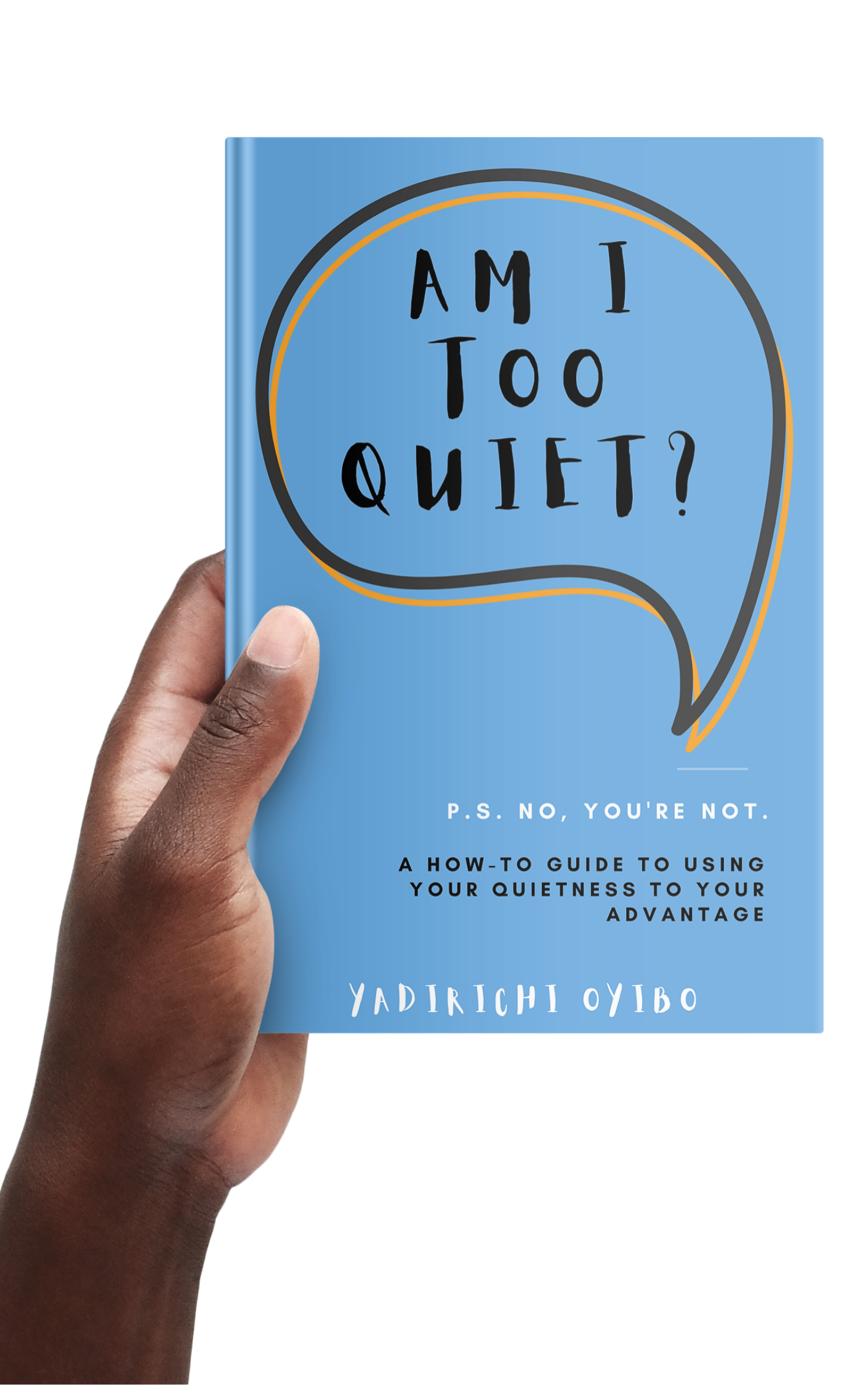5 Terrible Stages of the INFJ Door Slam
Photo by Darius Bashar on Unsplash
According to the Myers Briggs Type Indicator, an INFJ is someone with the introverted, intuitive, feeling, judging personality type.
People with this personality type are called Advocates and have empathetic and compassionate characters.
They are notably the rarest Myers Briggs personality type, making up approximately 1.5 percent of the entire world population.
Due to their rare personalities, these individuals are unique.
They easily stand out from the crowd and strive to make an impact with their quiet qualities. Some great examples include Martin Luther King Jr. and Nelson Mandela.
Despite their sweet and selfless natures, these individuals have a controversial side that contradicts their calm characters. It’s called the ‘INFJ door slam’. Here’s everything you need to know about the door slamming meaning.
What is the INFJ Door Slam?
The ‘door slam’ meaning is simply cutting people out of your life. It’s commonly affixed with the INFJ personality because they are prone to severing relationships more frequently than other people.
When something instigates this act, they block out their emotions and treat the individual like they don’t exist. In other words, they end any form of closeness with this person. The doorslam can also be described as ‘when an INFJ goes quiet’.
This process can happen in two magnitudes, however - either in mild or intense manners. For example, INFJs may find it hard to slam the door completely on a family member or co-worker merely because they see each other frequently. In this case, they may choose to be emotionally distant around that person.
In other severe situations where proximity isn’t an issue, INFJs can choose to slam the door with acts like deleting a person’s pictures, unfollowing them on social media, or acting like they never existed in their life. A useful example is an INFJ door slam breakup. This process will be more obvious to the individual, unlike the former scenario.
There’s a common phrase that says, ‘when an INFJ slams the door, they don’t hate you, they simply nothing you’. That is, they no longer feel any form of vulnerability around you.
This process might sound drastic from an external point of view, but there’s always more to the story when you choose to cut someone out of your life. Here are some of the reasons why INFJs do it.
Why do INFJs slam doors?
Photo by Scandinavian Biolabs on Unsplash
The major reason why an INFJ would slam the door is that they’re trying to protect themselves from getting hurt. The psychology behind door slamming is that if you cut someone out of your life, their actions won't hurt as much. There are several reasons why INFJs slam doors. Here’s a breakdown of a few of them.
They are sensitive.
INFJ people are empathetic creatures, which often makes them sensitive. They sometimes care about people too much and are filled with intense emotions. The downside of being sensitive is that you’d inevitably feel pain differently.
When a sensitive person says, “It hurts!” understand they are processing agony at much greater levels than the average individual. Since INFJs are aware of their susceptible natures, they often block out intense negative energy by slamming doors.
2. People often take advantage of their caring natures.
INFJs are arguably the most compassionate and self-sacrificing set of individuals you’d meet. They put others’ needs above theirs and are selfless like the word itself.
It’s a common notion that INFJs rarely think about themselves or know what they want — which some people might use to their advantage.
People might choose to be parasitic or toxic because an INFJ would never complain. These and other similar behaviors would eventually lead to the INFJ door slam.
3. People often try to dominate them.
The INFJ personality type has Extroverted Feeling (Fi) as one of its core cognitive functions. Therefore, these individuals would rather inconvenience themselves to make other people happy.
Such behavior makes them easy to be around but also attracts narcissists. People who thrive on control and dominance might victimize individuals like INFJs. When the relationship becomes toxic, an INFJ person can only protect themselves by being distant.
4. INFJs prefer authentic relationships.
The INFJ introvert might live a simple life but undoubtedly has high standards. Some of it can be seen in their choice of relationships. They would rather have one authentic friendship than countless superficial ones.
It’s also one of the reasons they have reserved characters. They understand that great relationships take time to build, and would patiently wait for it.
Some people might get close to INFJs without the intention to build something worthwhile. This process would eventually become unhealthy and lead to a door slam.
Five Stages of the INFJ Door Slam
Photo by Muhammadtaha Ibrahim Ma'aji on Unsplash
Believe it or not, the INFJ door slam doesn’t happen as fast as you think. The empathetic nature of these individuals prevents them from suddenly ending relationships they take their time to build. How then does the door slam happen? Below are the five prominent stages.
Dealing with the toxicity.
Most relationships that end with an INFJ door slam often involve unbearable situations. Disagreements are bound to happen between friends, partners, or even loved ones. However, persistent disputes often lead to deep emotional turbulence, which might be too hard on an INFJ.
2. Giving them a second chance.
INFJ people are insightful and caring, which helps them see things from different angles. They’d rather give people chances to prove themselves than make sudden judgments. Even with a repeated disagreement, they have high hopes that things will take a brighter turn.
3. Reduced emotional investment.
When an INFJ deals with a turbulent situation for far too long, they slowly become emotionally distant. They neither feel hate nor anger, but slowly void themselves of any emotion. In the long run, they understand that the only way to cope with the situation is to eventually stop feeling anything.
4. The door slam.
It’s much easier for an INFJ to deal with a broken friendship or relationship when they’ve become emotionless over some time. It’s like a recuperation period, which gives them the strength to walk away from something toxic (slam the door) — which would’ve been impossible in their naturally empathetic states.
5. The fall-out.
Most people often don’t see INFJ door slam signs until it’s too late. The fall-out happens when the INFJ moves on and there’s little to no chance of rebuilding the relationship. Even though door slams are hard to undo, here are some delicate steps you can follow if you want to get a second chance again.
Related: Am I Too Quiet? P.S. No, You’re Not. A How-To Guide to Using Your Introversion to Your Advantage
How to reverse INFJ door slam?
Photo by Penguinuhh on Unsplash
As an actual INFJ, I must admit that reversing a door slam is challenging. Once I suppress hurtful emotions, I never want to experience them again. Therefore, going about an INFJ door slam reversal the wrong way can put you in a bad spot.
You need to be delicate, cautious, and empathetic - even so, remember that you’re dealing with another person’s heart. Here are some useful steps to follow.
Admit you were wrong.
We INFJs are often so empathetic that we want others to behave the same way. We want people to acknowledge how their actions affect others because it resonates with our personality. Being reflective and admitting you were wrong will make a heavy difference in the recovery process.
You're actively showing compassion and responsibility, which indicates you can build a mature friendship with an INFJ. More so, you’re proving your trustworthiness, even in the face of challenges.
2. Have genuine intentions.
Most people only notice the INFJ door slam signs when an INFJ’s presence suddenly becomes beneficial to them. Therefore, their motive towards reversing the door slam is, more or less, selfish. They don’t value friendship but miss the person’s company and what they offer.
If you don’t have genuine intentions, the situation would inevitably become toxic again in the long run. You should care about the person more than the benefits of being around them. Your genuineness will make the work much easier.
3. Start afresh.
My experiences with door slams have been quite depressing. Most people feel they can pick up where things left off in a broken friendship, without addressing the root cause of the problem.
If you want to reverse a door slam, you need to accept that the previous friendship fell apart. Try to start things on a fresh note, but never assume that an INFJ’s silence indicates they’ve forgotten about the incident.
Don’t feign closeness to win them over. Instead, try to prove yourself by respecting their boundaries and creating a fresh yet positive impression.
4. Be patient.
Oftentimes, people are impatient with the door slam reversal process and end up accepting defeat. Establishing a great relationship with an INFJ takes time, as well as rebuilding one that was broken.
People with the Advocate personality never rush relationships, and the same applies when they choose to withdraw door slams. If your friendship with one is important, you’ll have to prove it with your patience.
The Impact of the INFJ Door Slam on both the INFJ and the other party
The INFJ Door Slam can have significant emotional consequences for both the INFJ and the person being shut out. For the INFJ, the Door Slam is a form of self-preservation, allowing them to protect themselves from further harm and establish personal boundaries.
For the other party, the Door Slam can feel sudden and extreme, leaving them with little to no chance of rebuilding the relationship. The Door Slam is often the result of a long buildup of issues, and for the INFJ, it is a final step taken after a significant incident or conflict pushes them to a breaking point.
Liking this article? Join our Introvert Club→
How to prevent the INFJ Door Slam
Photo by Pradeep Kumar on Unsplash
The major thing that leads to the door slam is emotional distance. People often say distance makes the heart grow fonder; but in this case, distance convinces an INFJ to move on, especially when a turbulent situation has been reoccurring.
The emotional distance that precedes the INFJ Door Slam is often a result of persistent disputes and emotional turbulence that becomes too hard for the INFJ to bear. INFJs are naturally empathetic and patient, giving people multiple chances to prove themselves before shutting down.
However, when they become emotionally distant, they slowly void themselves of any emotion to cope with the situation. This emotional distance serves as a protective mechanism for the INFJ, allowing them to eventually walk away from toxic relationships.
Disagreements are inevitable in relationships, but you should never neglect your friend or partner’s pain. Watch out for the signs that your friend or partner is hurting, and try to resolve things as soon as possible. More so, never allow so much distance that it forces them to give up on the relationship.
Strategies for Healing and Reconciliation
Healing and reconciliation after an INFJ Door Slam can be challenging, but it is not impossible. For the INFJ, reopening the door requires feeling safe from further harm, believing that the other person truly regrets the pain they’ve caused, and understanding why their actions were hurtful. The other person must commit to treating the INFJ differently to prevent further harm.
For both parties, communication and understanding are key to healing and rebuilding the relationship. It is essential to acknowledge the INFJ’s emotions and value their feelings, treating them with respect and kindness. Consistent respect and kindness can help the INFJ feel safe and valued, preventing the Door Slam from happening in the first place.
FAQs
What does an INFJ door slam feel like?
When the door slams on an individual, it’s unsettling to them because they’re used to seeing the warm and gentle side of someone they were once close to. To an INFJ, a door slam is a way to find inner peace and cope with the unstable nature of a relationship.
Do INFJ regret door slam?
An INFJ wouldn’t slam the door on a friendship except they thought it was necessary. Putting themselves first in a chaotic situation is something they rarely ever do, which is why slamming doors is quite necessary for them. After the door slam, they don’t feel pain or regret — they merely limit their vulnerability and become indifferent.
Is the INFJ door slam real?
Choosing to cut people off is common with all personalities, but might be more prominent with INFJs. These individuals are sensitive and often distance themselves from people playing with their emotions. When others tend to take advantage of their caring natures, they take a bang door approach.
What happens when an INFJ gets mad?
INFJs often lock out their emotions when they’re upset. These often try to process their thoughts before reacting, which is why they might keep quiet or shut people out when aggrieved. The last thing they’d want to do is to react without consideration.
Why do INFJ attract narcissists?
People with the Advocate personality tend to have calm characters. They are also quite empathetic and seek to please others more than themselves. Thus, narcissists might try to take advantage of these individuals because of their seemingly submissive natures.
Live Your Best Quiet Life
Get the Am I Too Quiet? book →
CONCLUSION
Were you enlightened by this article? Understand that INFJs are sweet creatures that prioritize their relationships. However, when they don’t receive the same energy, they’re likely to withdraw themselves. Kindly leave a comment if you liked this article or share it with others.


















